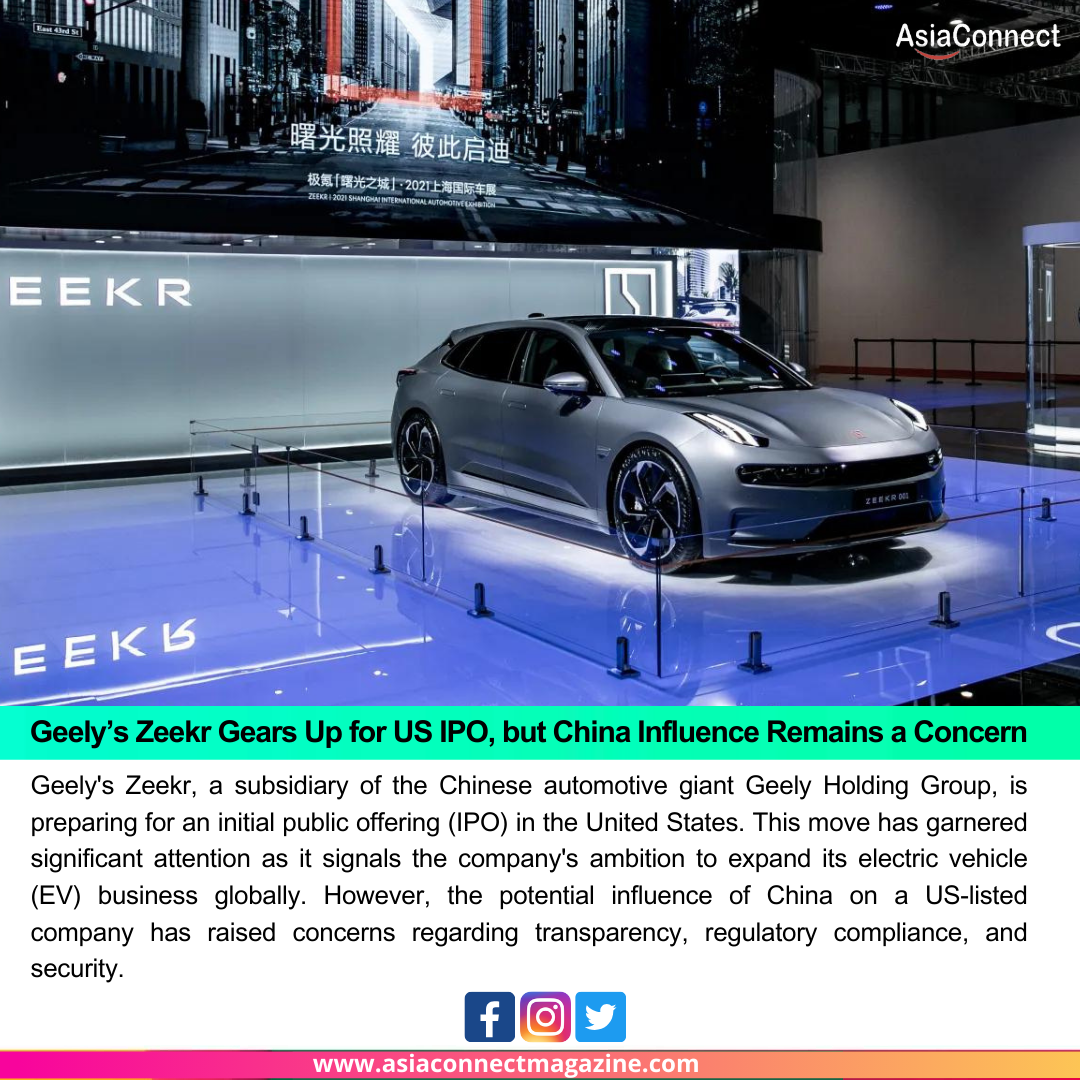“Geely’s Zeekr Gears Up for US IPO, but China Influence Remains a Concern”
Geely’s Zeekr, a subsidiary of the Chinese automotive giant Geely Holding Group, is preparing for an initial public offering (IPO) in the United States. This move has garnered significant attention as it signals the company’s ambition to expand its electric vehicle (EV) business globally. However, the potential influence of China on a US-listed company has raised concerns regarding transparency, regulatory compliance, and security.
Zeekr’s Ascent
Zeekr is a relatively new player in the electric vehicle market, established by Geely in 2020. Geely, known for its ownership of Volvo and a stake in Daimler AG, has been making substantial investments in EV technology and manufacturing. Zeekr represents Geely’s foray into the premium electric vehicle segment, with an emphasis on innovative technology and sustainability.
The company’s electric vehicles have garnered attention for their advanced features, and Zeekr has ambitious plans to compete with established EV manufacturers, both in China and globally. To fund its expansion and development efforts, Zeekr is looking to go public in the United States, possibly through a special purpose acquisition company (SPAC) merger.
The Concerns
While Zeekr’s IPO is a testament to the global appeal of Chinese electric vehicles and their potential to disrupt the automotive industry, it has also raised concerns about the influence of the Chinese government and regulatory bodies on a US-listed company. These concerns can be summarized in several key areas:
- Transparency: There are concerns about the transparency of Chinese companies and their adherence to US accounting standards. Cases of accounting fraud at some Chinese companies listed in the US have heightened these concerns.
- National Security: Given the sensitive nature of technology and information in the EV sector, concerns about potential national security risks have been raised. The US government has been scrutinizing Chinese companies operating in critical sectors.
- Regulatory Compliance: Regulatory differences between China and the United States have posed challenges for Chinese companies listed in the US. Compliance with both Chinese and US regulations can be complex and raise questions about how these companies manage conflicting obligations.
Geopolitical Tensions
The ongoing geopolitical tensions between the United States and China add an extra layer of complexity to this situation. The US has been taking steps to address these concerns by introducing legislation aimed at increasing the transparency of Chinese companies listed on US stock exchanges.
In addition, US regulators have sought more stringent audit requirements for Chinese firms, which has led to some Chinese companies opting for secondary listings in Hong Kong or elsewhere. Zeekr’s decision to pursue a US IPO in this environment suggests a high level of confidence in its ability to navigate these challenges successfully.
Balancing Act
For Zeekr and other Chinese companies seeking to go public in the United States, striking a balance between satisfying US regulatory requirements and appeasing Chinese authorities is a delicate and often complicated task. These companies must maintain access to the US capital markets, which provide a significant source of funding, while ensuring that they comply with the laws and regulations of both countries.
Companies like Zeekr are investing heavily in their global brand and are reliant on access to international markets to achieve their growth ambitions. Simultaneously, they must reassure investors and regulators that they are adhering to the highest standards of governance and compliance.
Conclusion
Zeekr’s upcoming US IPO is a significant development in the rapidly evolving electric vehicle industry. While it reflects Geely’s ambition to compete on a global scale and showcases the appeal of Chinese EV technology, it also underscores the complexities and challenges faced by Chinese companies seeking to list on US stock exchanges.
The concerns regarding transparency, national security, and regulatory compliance are real, and they underscore the need for careful consideration and oversight. For Zeekr and similar companies, the path to a successful US IPO will require meticulous navigation of these challenges, a commitment to transparency and compliance, and the ability to balance the interests of multiple stakeholders. The outcome of Zeekr’s IPO and the extent of its success in the United States will provide valuable insights into the future of Chinese companies seeking global capital while managing complex geopolitical and regulatory landscapes.





